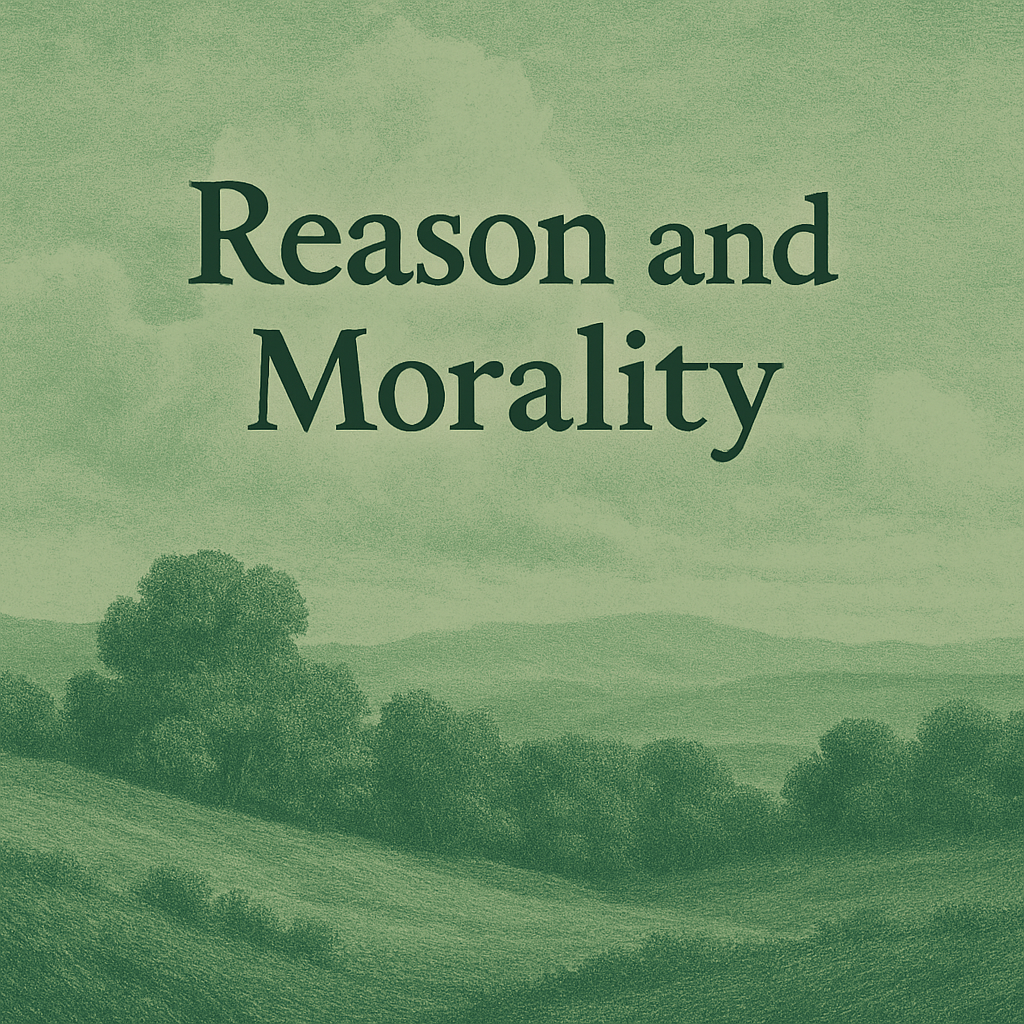A uneasy Alliance
We’re often told to be reasonable. To think logically. To act rationally. And in many areas of life, this advice serves us well. But I want to suggest something different. Something perhaps uncomfortable:
Pure reason by itself is not the goal.
Reason without morality, without heart, without a grounding in what is right for its own sake, can lead us somewhere cold, calculative, and destructive. It can lead us to win the argument but lose our soul.
This article is about the uneasy alliance between reason and morality and how the famous Prisoner’s Dilemma helps expose that tension.
The Logic Trap
Imagine two people arrested for a crime. The police don’t have enough to convict either one on the major charge, but they do have enough for a minor offence. So they offer each prisoner a deal: betray your partner, and you’ll walk free while the other takes the full sentence. If both betray, they get a moderate sentence. If both stay silent, they get the minor charge.
The “rational” choice? Betray. Each prisoner has an incentive to protect themselves.
But if both make that “rational” choice, the outcome is worse than if they had trusted each other and stayed silent.
This is the Prisoner’s Dilemma: self-interested logic can produce collectively worse outcomes. The trap is that doing what seems best for you often isn’t best at all not for you, not for anyone.
You see this in personal relationships. You see it in corporate competition. You see it on the world stage.
Take tariffs, for example. Two countries benefit from free trade. But each has a rational incentive to protect domestic industries with tariffs. If one does and the other doesn’t, the first gains a short-term advantage. But if both raise tariffs, everyone loses costs rise, trade declines, and cooperation breaks down. That’s the logic trap in action.
Why Reason Isn’t Enough
This dilemma reveals something uncomfortable about reason: it isn’t always moral. It’s not inherently good. In fact, reason if left unchecked can justify betrayal, exploitation, and cruelty, so long as they maximise the outcome for the one deciding.
In behavioural economics, there’s a concept called the Econ, a perfectly rational, calculating being who acts consistently to optimise outcomes. But human beings aren’t Econs. And we shouldn’t try to be.
Because what the Econ lacks is a moral centre. A sense of duty. An impulse toward what is right, even when it doesn’t benefit them. Without that, reason becomes a weapon. Efficient, yes but not ethical.
This is the crux of my argument: True reason must be a congruence between rationality and morality. It must not only think clearly it must care rightly. There must be a heart-level impulse to do good, not because it is strategic, but because it is good.
A Better Kind of Reason
Some philosophers, like David Gauthier, have tried to reconcile reason and morality. In Morals by Agreement, Gauthier introduces the idea of “constrained maximisation” — that people who commit to cooperation, even when it's not in their immediate interest, often fare better in the long run.
This is a step forward. But it still makes morality a strategy a calculated bet on future returns.
What I’m proposing goes deeper. I believe morality has to come before the logic begins. Not as a means, but as a foundation. Not “what’s the best outcome?” but “what’s the right thing to do?”
There are moments when no one will know what you did. When telling the truth will cost you. When forgiving someone means absorbing pain. In those moments, reason alone won’t get you through. Only conscience will.
Reason Needs Relationship
The philosopher T.M. Scanlon argues that moral principles are those that others could not reasonably reject. This makes morality a relational process. It’s not just about what you think is right it’s about what you can justify to others.
And this is something pure reason struggles with. Because reason tends to isolate. It asks, “What works for me?” Morality asks, “What honours us both?”
That’s why trust, sacrifice, and mutual care often seem irrational. Because they can’t be reduced to immediate personal benefit. They only make sense when we zoom out when we see ourselves not as lone actors optimising, but as human beings accountable to one another.
Moral Impulse Is Not Irrational, It’s Supra-Rational
Here’s what I want to emphasise: morality isn’t irrational. It’s supra-rational. It transcends short-term logic without rejecting thoughtfulness. It asks more from us not less.
The impulse to help a stranger, to stand up for truth, to keep a promise when it hurts these are not failures of reason. They are elevations of it.
True moral action is not opposed to thinking. It is the highest form of it.
That search for truth must include moral truth the quiet conviction that doing what is right matters, even when it doesn’t “pay off.”
Returning to the Heart
In my last post, I wrote about the daily practice of living A Good Life about aligning our values and actions, about introspection, humility, and courage.
This article builds on that. It asks: What happens when those values and actions come into conflict with reason itself?
And the answer, I think, is this:
We must not discard reason. But we must root it in the heart.
We must let conscience inform our thinking, not just calculation, not just strategy, but wisdom.
A Closing Thought
We live in a world that prizes intelligence, strategy, and optimisation. And reason, when rightly applied, is a powerful tool. But when reason is unanchored from morality, it becomes dangerous.
We become efficient but hollow. Clever but callous.
A good life is not built through logic alone. It is built through congruence, a deep alignment between our thoughts, our values, and our actions.
So next time you’re faced with a decision that pits your interests against your integrity, pause.
Not to calculate. But to listen.
To that inner voice that says: “Do the right thing. Not because it works. But because it’s right.”
That is reason as it should be.
This post contains affiliate links. If you buy something through them, I may earn a small commission at no extra cost to you.

